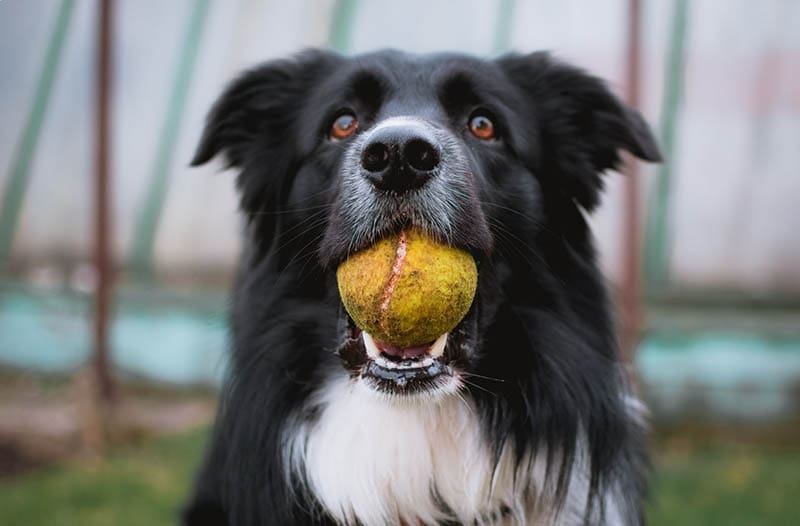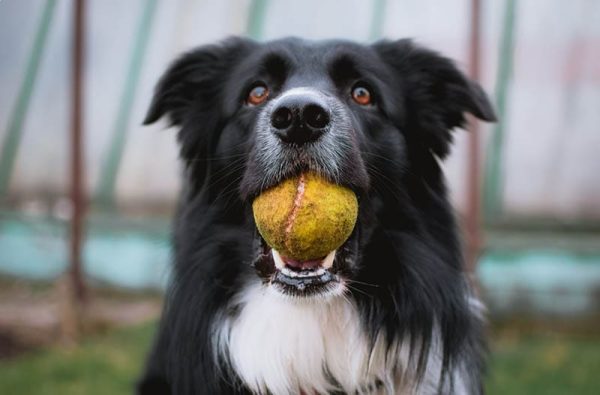Click to Skip Ahead
Aussies are such good buddies that we want to spend as much time with them as possible. Maybe you’re noticing the fur around your beloved companion’s muzzle is turning gray and you’re wondering how old they are in human years. Or, perhaps you’re looking for your new best furry friend and you’re wanting to find a breed with a long-estimated life span.
The good news is that Australian Shepherds live longer than most dogs on average. The average lifespan of an Australian Shepherd is from 12 to 15 years. However, individual dogs may live significantly longer or shorter than this range depending on their health and their quality of care. We’ll talk about some ways that you can help lengthen your dog’s life, as well as habits to avoid that could shorten their time with you.
What’s the Average Lifespan of an Australian Shepherd?
As a general rule, Aussies live longer than most dog breeds. The average life expectancy for all dogs is only 10-13 years. You can typically expect 12-15 years from your Aussie. The exact amount of time depends on their quality of life, their genetics, and honestly, factors outside of your control. Here are some reasons that some Australian Shepherds beat the odds and surpass their life expectancy.
Why Do Some Australian Shepherds Live Longer Than Others?
1. Nutrition
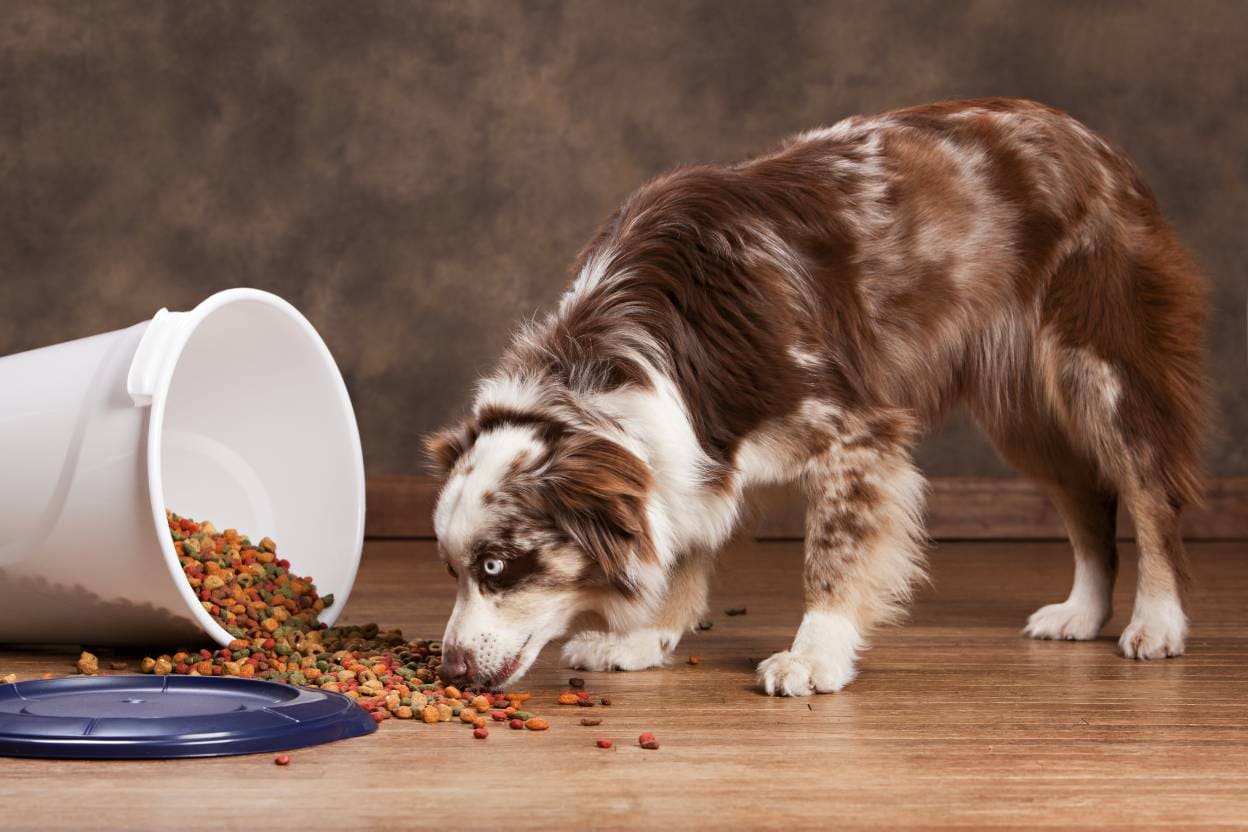
Just like humans, dogs need to eat healthily to be healthy. However, canine nutritional standards are different from ours. Dogs are carnivores, but not obligate carnivores like cats. This means that they can eat plant matter, but they still really need meat to thrive. A well-balanced diet for a dog will mostly consist of protein (meat), followed by fat, and a smaller amount of carbohydrates. WSAVA offers good advice on how to choose a pet food in general. Talk to your veterinarian to find the best formula for your Aussie.
2. Exercise
Aussies don’t count sheep to sleep. With a recent history of herding, Australian Shepherds love to chase animals and romp through pastures. They’re considered a high-energy dog who needs at least 1-2 hours of exercise every day depending on the life stage. Puppies need shorter, more frequent exercise intervals than adults so that they don’t stress their developing joints, and declining seniors may require only brief exercise sessions throughout the day.
While you don’t have to own a farm to make this dog’s dreams come true, you should ideally have a secured fenced yard for your dog to relieve its days as a herder’s companion and access to areas for free running and training. Aussies don’t prefer independent play, so plan on joining in on the fun, too.
3. Sex
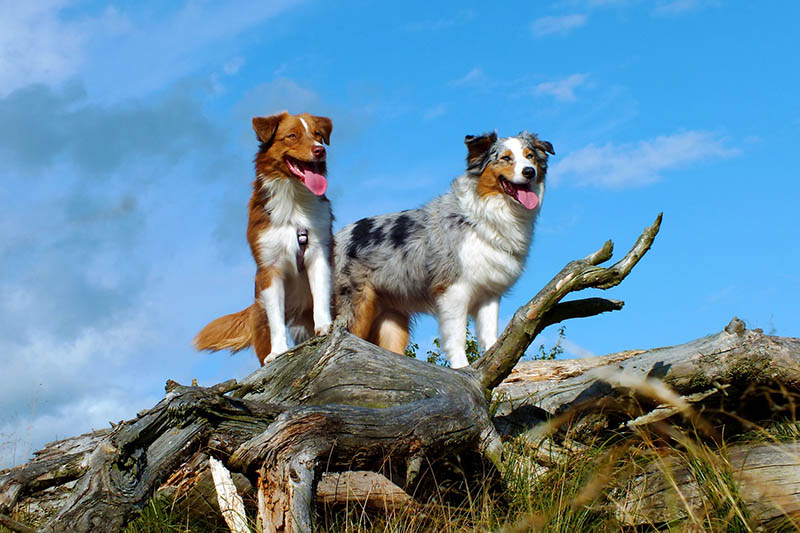
Unlike the human species, where the women have the advantage of a longer life expectancy, Australian Shepherds share the same lifespan of 12-15 years regardless of sex. Their appearance and personalities tend to vary slightly however, with the males being a little bigger and more affectionate than their smaller and slightly reserved female counterparts.
4. Genes
All breeds are predisposed to some hereditary illnesses. Registered breeders typically screen their Australian Shepherds for ear and eye issues because they’re more prevalent than some other health conditions. Some hereditary conditions that may not be able to be easily predicted or prevented include certain types of cancers, epilepsy, and adverse reactions to certain types of drugs, such as ivermectin.
Hip and elbow dysplasia are more of a dynamic issue that’s partially genetics and partially lifestyle. Larger dogs usually carry a higher risk, but so do dogs with certain habits. Too much strenuous exercise as a young pup can predispose Australian Shepherds to arthritis later in life. Conversely, not receiving enough exercise results in obesity, which stresses the joints and also may cause arthritis.
5. Healthcare
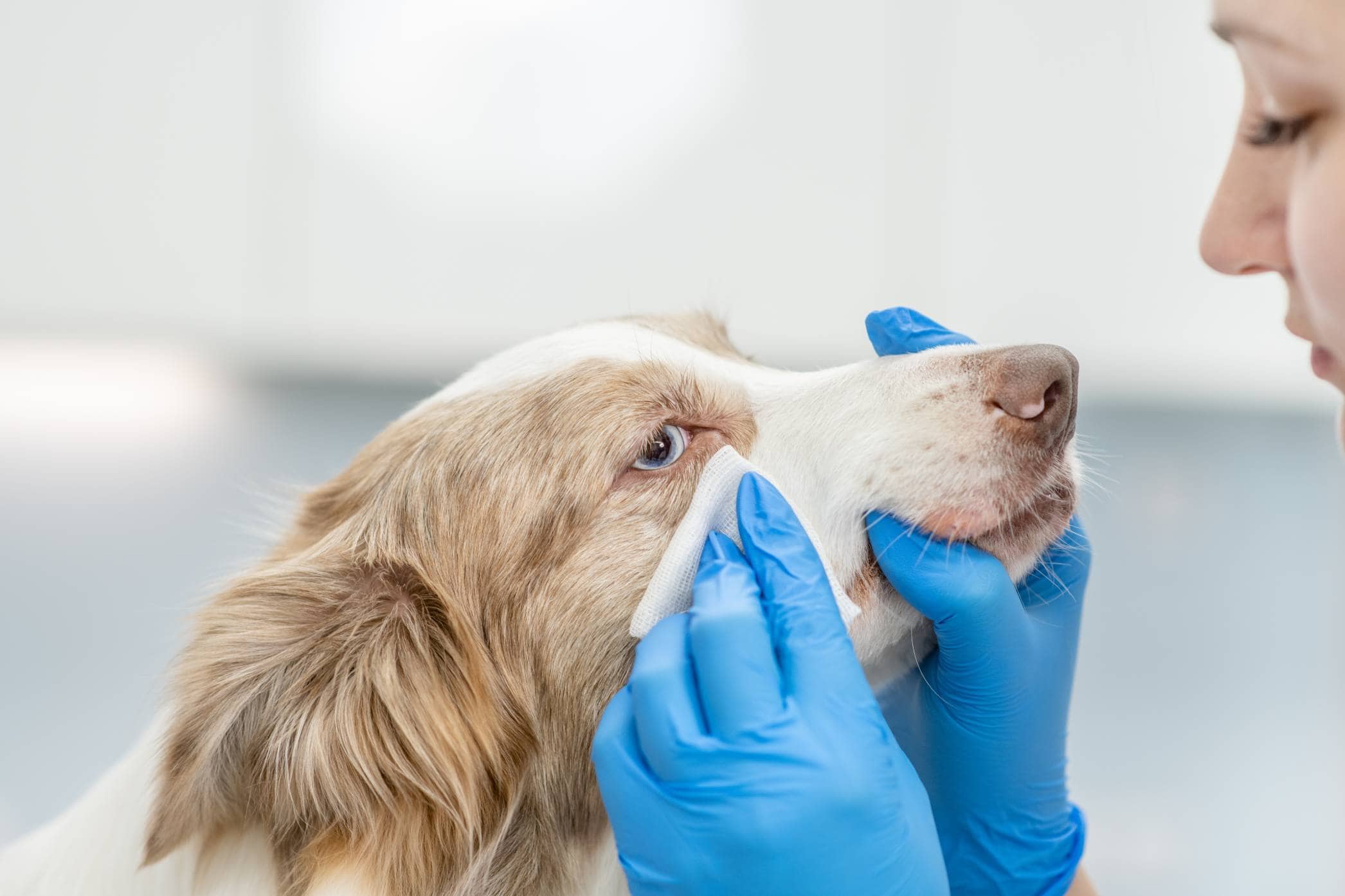
Periodic wellness visits can help catch some diseases early on, which gives Australian Shepherds a better prognosis. You should take your dog to the vet at least once per year for a check-up as an adult, or several times a year if they’re a puppy or senior.
The 4 Life Stages of an Australian Shepherd
Puppy
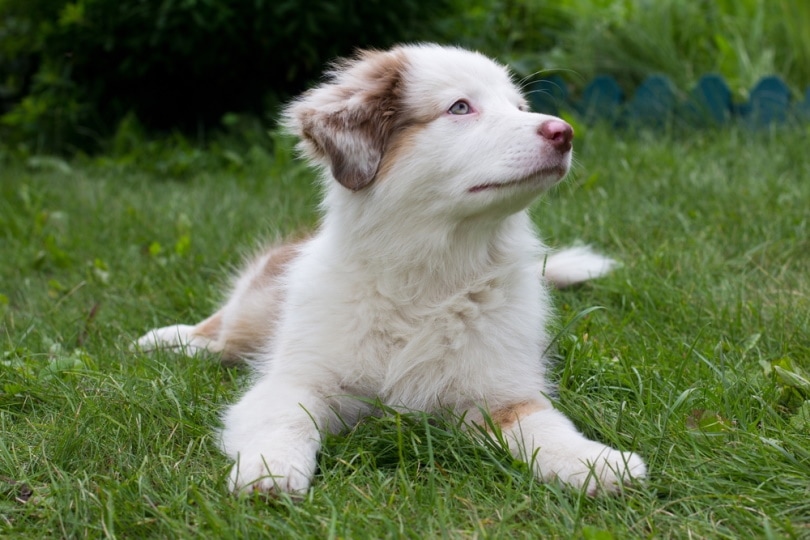
From birth to six months old is considered the standard puppy age. During this time your Australian Shepherd will gain most of its vertical growth. They’ll acquire and lose all of their baby teeth, and usually will have cut their permanent teeth by the time they’re six months old.
Adolescent
Equivalent to puberty in humans, your Australian Shepherd will begin to reach sexual maturity between 6 months and 1 year. During this time, they’ll go into their first heat cycle if they’re female or become capable of reproduction if they’re male, so you’ll need to make the decision on if you’re willing to raise puppies or if you prefer to spay/neuter. Most Australian Shepherds will keep growing at a similar rate that they did in puppyhood until they’re around 1 year old.
Adult
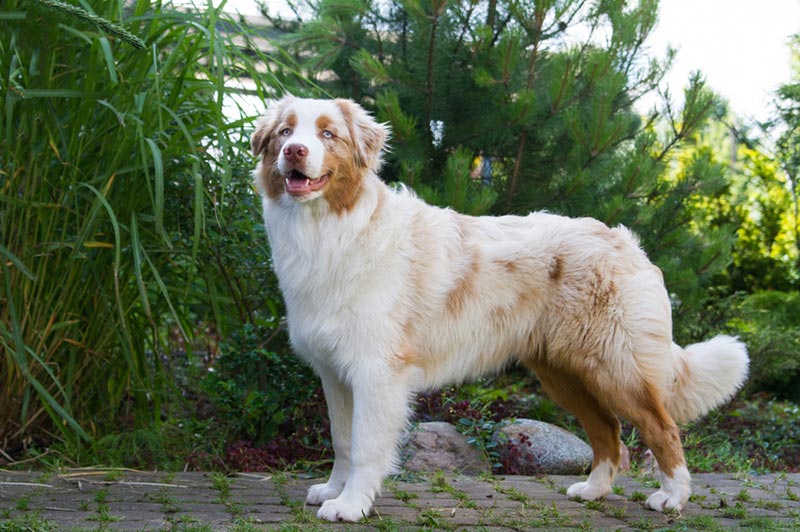
Senior
After their first birthday, your Australian Shepherd is officially considered an adult. You can switch them off puppy food and put them on an adult diet. Most of their vertical growth is finished, although they’ll continue to fill out for another year or so. Although they’re considered an adult in age, your energetic Aussie may continue to act like they’re a young pup for a few more years.
Dogs are considered to reach senior status once they’ve reached the final 25% of their life expectancy. For Australian Shepherds, this means they’ll become seniors sometime after their 9th birthday. Your dog will start to slow down during this time, but you should still encourage them to go on walks with you and explore as they can. You’ll probably want to switch them to a senior diet because older dogs have a tendency towards obesity, which can be detrimental to their health.
How to Tell Your Australian Shepherd’s Age
You can sometimes tell how old your Aussie is by how big they are. Adult females reach up to around 40 lbs., while the males can weigh nearly 60 lbs. If your dog weighs significantly less, it might still be a puppy or not a pure-bred Aussie. Your vet can also usually give you a good estimate of your dog’s age by looking at the condition of their teeth. The presence or absence of plaque is an indicator of age because usually dogs have some by the time they’re 1 years old. Unfortunately, 80% of dogs develop periodontal disease by age 3, which is why dental cleanings are important.
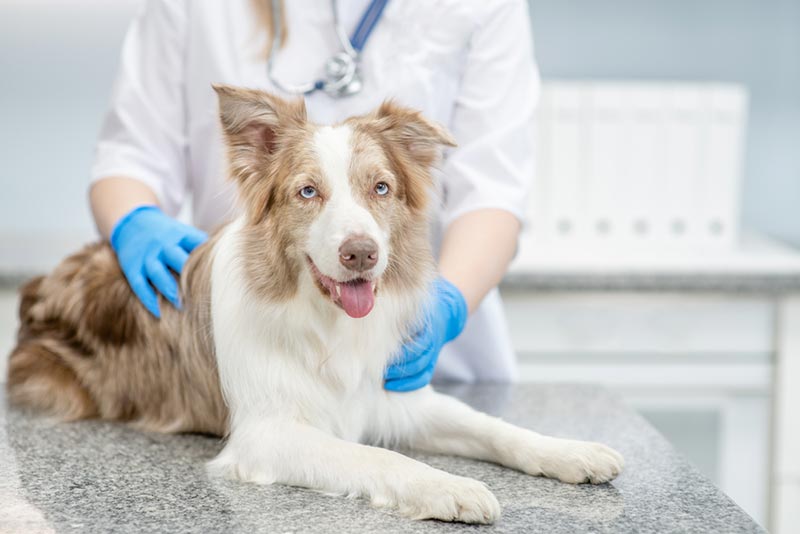
Final Thoughts
Whether you just bought an Aussie puppy or rescued an adult from a shelter, giving them adequate nutrition, exercise, and healthcare can add health, joy, and length to their life. Even if you do the very best you can, unfortunately, there are still factors outside of your control that determine how long your dog will be on earth. No matter how much time you think you have left, giving your dog the best of your love will make them feel like the most important pup alive for the rest of their life.
See also:
- How Long Do Mini Australian Shepherds Live? (Average Lifespan Data & Facts)
- Top 15 Herding Dog Breeds (With Pictures)
Featured Image Credit: Tadeusz Lakota, Unsplash

